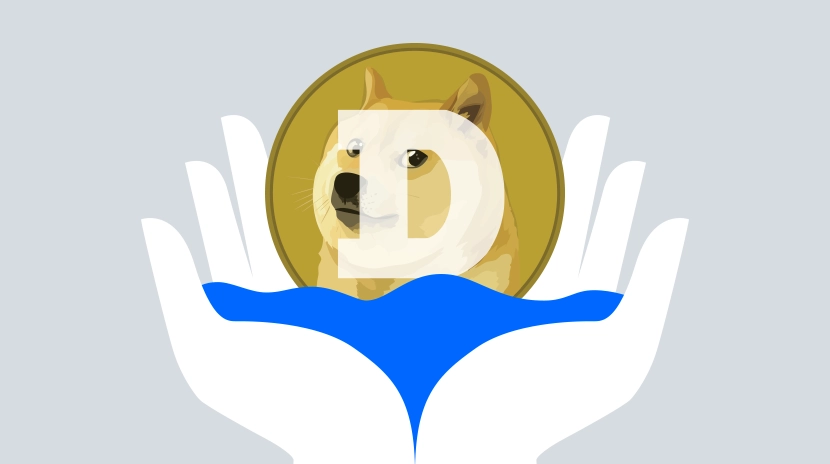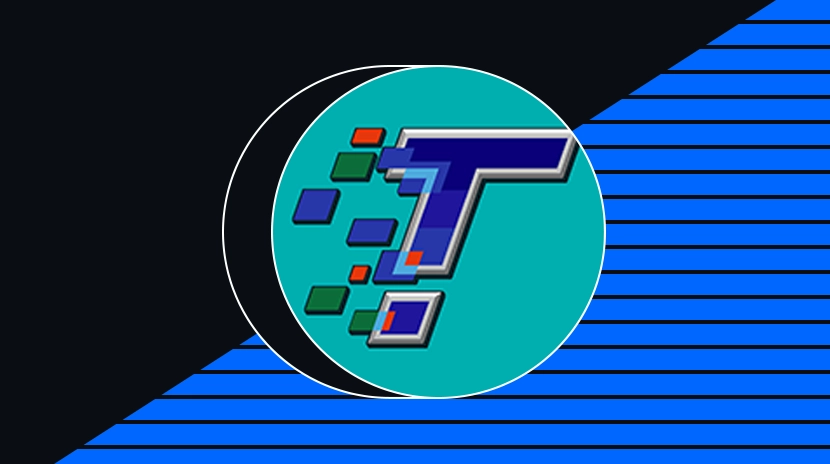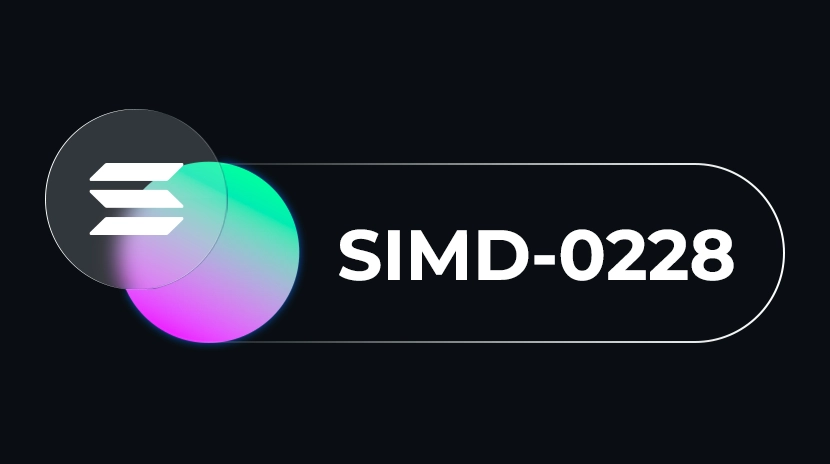Les investisseurs en capital-risque trouvent de nouvelles approches marketing pour les "VC Coins"
Récemment, la célèbre société de capital-risque blockchain HackVC a annoncé le lancement d’un cycle d’investissement communautaire sur Echo. En tant que l’un des premiers gestionnaires de fonds cryptographiques réglementés basés aux États-Unis à lancer un « tour de table communautaire » sur la plateforme, HackVC espère profiter de cette opportunité pour se transformer en un véritable capital-risque axé sur la communauté. Avec le déclin de la confiance dans les sociétés de capital-risque sur le marché des crypto-monnaies, il semble que les sociétés de capital-risque commencent à chercher à se transformer, dans le but de se rapprocher du marché et de ses participants.

Alexander Pack, le fondateur de HackVC, a effectué son premier investissement crypto à l'âge de 22 ans alors qu'il travaillait dans une société de capital-risque fintech à Hong Kong. À l'époque, le marché de la crypto était encore à ses balbutiements, mais Pack croyait en son avenir. Il est ensuite retourné aux États-Unis et a rejoint Bain Capital, où il a contribué à diriger les investissements de la société dans la crypto. En 2018, Alexander a co-fondé Dragonfly Capital avec Bo Feng, devenant son premier associé directeur. Depuis, la société est devenue l'un des plus importants fonds crypto en Asie. En 2020, Pack a quitté Dragonfly pour lancer HackVC.
Rien qu'avec son nom, il est clair que HackVC met l'accent sur la technologie. Comme le dit Pack lui-même, HackVC est "un groupe de pirates investissant dans d'autres pirates". Le partenaire directeur de la société, Ed Roman, a fondé le célèbre événement de hackathon hack.summit(), tandis que les partenaires de recherche Christopher Maree et Sean Brown viennent du projet oracle UMA. Maree était autrefois un boursier de Devcon V avec la Fondation Ethereum, et Brown a été conseiller principal en blockchain chez IBM. Naturellement, la philosophie d'investissement de HackVC met l'accent sur la faisabilité technique et la scalabilité.
Cet accent a donné de bons résultats lors de récentes rondes d'investissement. HackVC a été un premier soutien de projets à fort potentiel comme Berachain, EigenLayer, Morpho, Grass et Soon.
Pour aller plus loin :"Tout le monde critique les jetons VC - Alors comment se comportent vraiment les VC cette fois-ci ?"

Écho: Un Retour aux Premiers Principes
Avec l'émergence de nouvelles formes d'investissement, telles que les tours d'agence axés sur la recherche et les préventes menées par des influenceurs, les cycles de collecte de fonds sont devenus plus courts, la participation des investisseurs plus profonde et les taux de réussite plus élevés. En réponse, les VC sont poussés à développer une meilleure logique et des modèles d'investissement.
Le dialogue de Pack avec le fondateur d'Echo, Cobie, reflète ce changement de mentalité. Cobie estime que le mécontentement croissant de la communauté crypto à l'égard des VC est en réalité une réaction à un système injuste. Il soutient que lorsque les individus sont autorisés à investir dans les premiers tours, la demande augmente généralement pour les projets soutenus par des VC de haute qualité. Cela ouvre la voie à un nouveau type de VC : un VC convivial pour la communauté, invitant à la participation à travers des tours publics ou des portes communautaires, et alignant ses incitations avec l'écosystème global. Lorsque la communauté est alignée avec un projet, cela augmente la probabilité de succès de ce projet.

Cette philosophie résonne profondément avec Pack. Sur Twitter, il a partagé qu'il est entré dans l'espace crypto il y a plus d'une décennie car il croyait qu'il pourrait démocratiser l'accès à l'investissement technologique. Au début de sa carrière, il a rejoint la plateforme de financement participatif AngelList en tant que premier analyste, l'aidant à pousser pour la loi CROWDFUND Act de 2012. Alors que la loi légalisait le financement participatif en actions, Pack a estimé que l'initiative était insuffisante, entravée par la bureaucratie réglementaire et une mentalité d'investisseur Web2 qui ne valorisait pas encore l'implication de leur communauté dans les levées de fonds.
Cependant, Echo propose une approche fondamentalement différente des plates-formes ICO traditionnelles. Fondée en mars 2024 par l'influenceur crypto Cobie (alias @echodotxyz) , qui a précédemment dirigé la croissance chez Lido et co-animé le populaire podcast Web3 UpOnly, Echo est centré autour d'un modèle de "recommandation d'investisseur principal". Les utilisateurs peuvent agir en tant qu'investisseurs principaux en formant des groupes d'investissement, en partageant des offres avec les membres et en gagnant une part de tout gain.

Contrairement au modèle de CoinList, où les investisseurs soutiennent directement les projets et reçoivent en retour des jetons, Echo facilite la formation de capital communautaire autour des économies de jetons. Les utilisateurs natifs on-chain regroupent leurs ressources pour investir dans des startups via des syndicats. Le flux de fonds est acheminé par le biais de véhicules d'investissement intermédiaires et peut impliquer à la fois des jetons et des participations en actions, le rapprochant ainsi de l'investissement providentiel que des ICO traditionnelles.
Depuis son lancement, Echo a aidé plus de 30 projets cryptographiques à lever des fonds, notamment Ethena, Morph, Usual, Hyperlane, Dawn, Monad, Initia et MegaETH. Au total, la plateforme a facilité 100 millions de dollars de collecte de fonds en un an. Notamment, MegaETH a levé 10 millions de dollars lors de deux tours via Echo en décembre 2024 - le premier tour (4,2 millions de dollars) s'est vendu en 56 secondes, tandis que le second (5,8 millions de dollars) s'est clôturé en seulement 75 secondes.
Echo fonctionne davantage comme une "alliance d'élite" d'investisseurs en crypto - ciblant des projets à haut potentiel approuvés par des communautés très soudées. Des personnalités influentes telles que le PDG de The Block, Larry Cermak, et le fondateur d'Aave, Marc Zeller, ont déjà lancé leurs propres groupes Echo. Pour rejoindre, les utilisateurs doivent subir une vérification KYC et répondre à des questions spécifiques. Certaines communautés imposent des exigences supplémentaires pour accéder à des offres exclusives. Actuellement, 58 leaders communautaires ont des groupes actifs sur Echo.

Ce modèle communautaire utilise des contrats intelligents pour gérer les fonds, garantissant que les investisseurs principaux n'ont jamais accès au capital des utilisateurs et donnant aux utilisateurs le contrôle sur le moment de vendre leurs jetons. Si un investisseur principal se comporte bien, il reçoit un pourcentage des bénéfices de ses disciples, ce qui les incite à partager des opportunités de qualité. Bien que le modèle d'Echo soit élite par conception et attire une base d'utilisateurs de niche, ce mécanisme de filtrage aide à maintenir la qualité du projet et attire des investisseurs axés sur la confiance.
Le vice-président du développement corporatif de Coinbase, Shan Aggarwal, et le fondateur de Base, Jesse Pollak, ont souligné dans une déclaration commune que "l'investissement on-chain donne aux investisseurs qualifiés un accès de manière inédite, tout en offrant aux fondateurs une base de capital plus diversifiée et dynamique. Nous sommes ravis d'élargir le pipeline de capital de Base et d'attirer davantage de participants dans la prochaine vague d'innovation.
Certains experts de l'industrie pensent que l'environnement réglementaire relativement laxiste aux États-Unis pourrait conduire à une résurgence des ventes publiques de jetons. Matt O'Connor, co-fondateur d'une autre plateforme ICO à la mode, Legion, a commenté: "Une fois que les ICO reprennent de l'ampleur, le marché pourrait commencer à s'éloigner de la folie actuelle des memecoins." À mesure que moins de constructeurs créent des produits réellement utiles, plus de richesse s'accumule discrètement en coulisses.
Les premières expériences de HackVC avec l'intégration de la communauté
HackVC a officiellement lancé son groupe Echo, optant pour ouvrir l'accès à ses ressources de projet de base via un processus d'admission privatisé et sélectif. La société lance également une politique de frais de performance zéro pour la première année. De plus, HackVC exige que les entreprises du portefeuille incluent un tour de financement communautaire, et impose un principe de "valorisation communautaire d'abord". Cela signifie que s'il s'agit du premier tour du projet, le tour communautaire doit être tarifé plus bas que le tour institutionnel concurrent. Sinon, la valorisation doit quand même être inférieure au dernier point d'entrée du VC. Cette conception structurelle garantit que la communauté bénéficie d'un avantage de prix.

Bien qu'il y ait encore un débat dans la communauté sur la question de savoir si ce modèle est qualifié de "jeton de gouvernance" ou de vrai "DAO", le mouvement de HackVC, quelle que soit son issue, a posé un exemple fondateur de la façon dont les VC pourraient collaborer avec les communautés pour développer des projets futurs. L'évolution du financement de la crypto est essentiellement une chronique de l'innovation continue dans les mécanismes de coordination communautaire : du modèle de preuve de travail de Bitcoin qui a introduit l'exploitation minière équitable, au financement participatif on-chain de 18 millions de dollars d'Ethereum en 2014, à l'essor des ICO en 2017, l'élan communautaire a toujours été au cœur de celui-ci.
Après l'ère des ICO, deux chemins distincts ont émergé. Des plateformes centralisées comme CoinList ont permis à des projets tels que Solana de lever des capitaux à grande échelle, bien que dans certaines limites. D'autre part, des mécanismes tels que les largages aériens et le yield farming ont abaissé les barrières à l'entrée mais manquaient souvent d'un fort engagement des utilisateurs.
Maintenant, avec des cadres de conformité et une infrastructure on-chain qui se maturent, l'écosystème entre dans une nouvelle phase. Echo restructure le financement participatif grâce à un modèle de syndicat non dépositaire, tandis que Legion exploite les systèmes de réputation on-chain pour optimiser le filtrage des investisseurs. Cela marque le début d'une nouvelle étape pour le financement communautaire - celle qui préserve l'ouverture de l'ère des ICO, mais l'améliore avec des outils technologiques pour trouver un équilibre entre efficacité et équité. Un nouvel âge d'or des investissements cryptographiques conformes et précis pourrait être juste au coin de la rue.
Avertissement :
Cet article est repris de [ BlockBeats]. Copyright belongs to the original author [BULLE]. Si vous avez des objections à la réimpression, veuillez contacter le Gate LearnL'équipe s'en occupera rapidement selon les procédures pertinentes.
Avertissement : Les points de vue et opinions exprimés dans cet article sont uniquement ceux de l'auteur et ne constituent pas des conseils en investissement.
D'autres versions linguistiques de cet article ont été traduites par l'équipe Gate Learn. Sans mention explicite deGate.io, la reproduction, la distribution ou le plagiat du contenu traduit n'est pas permis.
Articles Connexes

Un aperçu de la relation amour-haine de Musk avec DOGE

Comprendre Tribe.run en un article

Top 10 Chinois Podcasts Crypto pour 2025

Une revue des quatre principales IP Web3

Exploration de SIMD-0228: L'art subtil de l'équilibrage stratégique derrière la proposition
